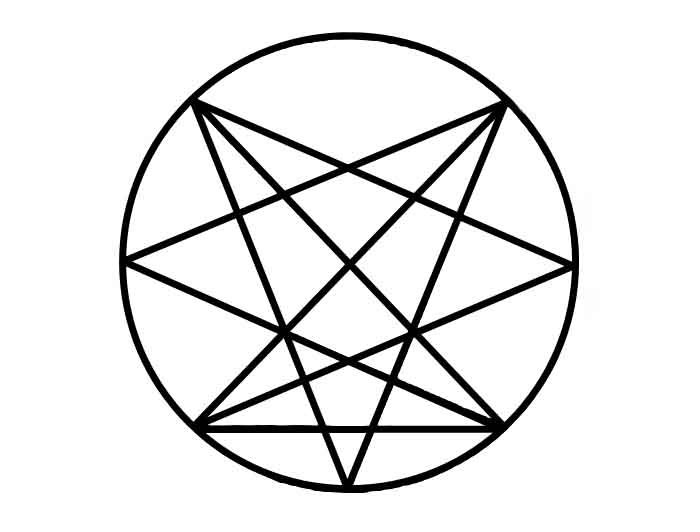Let us say that genetics may be upstream of culture, but culture including philosophy and religion is upstream of politics, and therefore, that if we want to understand politics, we need to read it as philosophy, just like we need to read religion as literature to understand its point.
What, then, would be The Metal Philosophy™?
Heavy metal expresses a number of traits that we can abstract outward, finding a center, and then use as the seed of a philosophy:
- Beauty in darkness.
- Obsession with death, disease, destruction, and collapse.
- Rejection of (conventional) religion.
- Transcendental nature worship.
- Misanthropy, or at least natural selection and possibly eugenics.
- Interest in the supernatural and the occult.
- Structure of riff more important than texture of harmony.
If we look at this, we see a contrast between human patterns, which are what people want to think is true, and natural patterns, which exist in everything including ourselves but we choose not to see, which explains the misanthropy and obsession with occult or “hidden” truths. Add to that the obsession with structure and the supernatural, and you see a primitive idealism emerging, then factor in the need for darkness to make sense, and you have basic transcendentalism.
This gives us a formula for metal: idealism (a pattern-based view of existence), transcendentalism (the overall structure being good and requiring good/evil in balance), and anti-humanism (a rejection of human surface-level patterns in favor of those found throughout nature). This type of view has been common in the West since at least the days of Plato.
We can see an expression of this notion in a metal-related but unlikely source which provides a powerful metaphor:
“The golden rule, basically is, if you modify a wave form in such a way that the harmonics and the end result do not obey natural laws that occur in nature, it’s not going to sound very good…A series of odd harmonics is not as musical as the even harmonics are. It sounds discordant.”
In other words, even noise has rules, and those instruct us on how to make structure within the chaos that is “good” despite being formed of the texture of “bad.” In the same way, metal sees war as fascinating, especially when this feared method can be used for a good outcome, or even simply an intense experience.
That takes us to the core of metal, which is like the early existentialism of the Romantics: life should be intense. Not purely pleasurable, although intensity is enjoyable, but it should express things of greatness, power, terror, intrigue, depth, and beauty.
In that, metal rebels against the predominantly utilitarian philosophies of its time, which say that basically whatever most people say they think is good enough is “good,” and whatever goes against that is “bad.” Metal rejects this notion of good and evil, pointing out that its good is a weak neutered evil.
Instead of living in thrall to what the herd thinks, metal suggests that we go find that order of nature (“natural laws that occur in nature”) and impose a sense of symmetry (“even harmonics”). This fits with everything we know of its craft, and all that we can see expressed in its art.
Tags: distortion, Heavy Metal, natural laws, Philosophy, the metal philosophy



Good summary. Though I think the transcendentalism and anti-humanism weren’t there from the start, especially the former seems part of later development (nature worshiping BM?).
If you want to understand politics attend your local town hall meetings, vote on propositions, remove elected officials, participate on the local school board, attend protests blocking busses of immigrants dumping people off at the town center, and above all have skin in the game of your community. Politics isn’t about philosophy it’s about interest management. The delicate imbalance of cost and benefit distribution among a population. It is tempting to think that gay marriage is a philosophical and or ideological matter when it is not: these are disputes over access to social capital and institutions. Secondarily it is about power: controlling a larger sum of economic capital and therefore representation of ones groups interests.
To understand religion you need only practice it and observe the effects of its heuristics on your life and how it aids the survival of yourself, your family and your “tribe”.
Romantics are wrong and historians give the wrong impressions of life. Life is only sometimes intense the rest of the time it is cumbersome, tedious, boring; just another day. Most of history like most of our lives: negotiating with others to maintain peace, solving seemingly mundane disputes, trading, meeting at the village center for discussion about the issues pressing the commons over a pint as the local lute wizkid plays standard tunes in the background.
You cannot understand cooking without cooking. You can study recipes, theory, cooking utensils and other tools and you may even draw some generalized observations on cooking but rest assured any accurate conclusions will be purely luck. Cook first, then think about it after spending decades in the kitchen and talk about cooking last.
Looks like someone signed up for the Humanities.
Good idea. In a classical education, familiarity with the humanities is expected as the basis for understanding how to apply any other knowledge.
Lol all I took in college before dropping out was the humanities. At a certain point I realized I wanted to be a human being not an academic so i got a job.
I disagree partially here. Politics is every bit about philosophy, but every organism invents a philosophy to serve its perceived interests.
I mean honestly this sounds like full agreement.
“intrigue”
I’d say “mystery”.
Which leads to exploration / conquest.